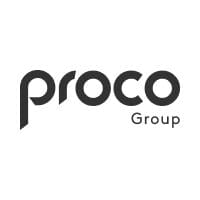Last week saw the convergence of sustainability and operations professionals from across the globe to attend Sustainability LIVE.
The conference is dedicated to inspiring and empowering leadership executives in driving and further embedding their sustainability agendas through thought leadership.
With an agenda full of insightful and thought-provoking topics, attendees left armed with new ideas to bring sustainability to life across their organisations. In this article I share 4 takeaways from the event.
1. Companies Need to Further Empower Consumers with Sustainability
Who moves first on sustainability: consumer or company? This was the question the team at Diageo took to the stage to answer.
It’s a complex question with many considerations, however, Deb Caldow, Marketing Sustainability Director, and Dave Lütkenhaus, Global Sustainability and Innovation Director, shared some statistics that highlighted the imperativeness for companies to take the lead by explicitly empowering the customer. Naturally, sustainability is embedded within the DNA of large CPG corporate teams across R&D, innovation and manufacturing, but how well does that translate into consumer behaviour? A recent Diageo survey found that, whilst 68% of their consumers said they wanted to live a more sustainable lifestyle, 56% of them didn’t then actually act on this. The top three reasons customers gave:
- Sustainable options are too expensive (61%)
- Sustainable options not as effective (48%)
- Sustainable options too hard to find (42%)
For Diageo, it became clear that they needed to flip the “say/do gap” by continuing to take the lead in sustainability, but this time with their consumer experience at the centre. This looked like offering better consumer solutions that were more convenient, accessible & desirable, whilst also being more sustainable. All while simultaneously continuing the corporate effort to reduce materials, eliminate excess packaging, lightweight and develop novel substrates to reduce water impact.
Diageo shared their success around the development and launch of their new Baileys bottle, the first of its kind made from 90% paper using dry moulded fibre technology. Consumer feedback was overwhelmingly positive on the move away from glass. What’s more, customers wanted the sustainability benefits to be emphasised, asking for environmental highlights to be included on the packaging.
2. Mindset: The Genius of ‘AND’
A key topic at the event was the concern surrounding the impact of sustainability initiatives on other areas such as product performance, desirability, and cost.
Sustainability is far more than regulatory Scope 1, 2 or 3 reporting requirements, sitting at the heart of innovation as well as at the corporate strategic level. Sustainability is also a key consideration for potential investors, so it’s not only benefitting the environment, the consumers, but also benefits the business and shareholders. Leaders emphasised that sustainability doesn’t have to be an ‘either/or’ strategic option, Diageo going even further by explaining their adoption of ‘the genius of AND’.
The ‘AND’ stems from a book called ‘Built to Last’, written by James Collins. It explores the mindset of the “genius of the AND” where, instead of choosing between A or B, companies find a way to have both A and B.
The prevalence of ‘AND’ was echoed when James Gowen, Verizon’s CSO and SVP of Global Supply Chain and Sourcing, discussed future challenges between delivering business growth and sustainability simultaneously. Doing right by the customer, business, and environment fits Verizon’s value of being a ‘good corporate citizen to the world’.
In his keynote, James reaffirmed the importance of Scope 3 and setting up the right governance infrastructures for the timeliness and transparency of reporting down the supply chain to maintain sustainability. In light of Scope 3, there is a shift in dynamic between buyers and supplier – with more power increasingly sitting with the supplier. James highlighted the diversification of their supplier base as not only being key to supply chain resiliency, but also for sustainability and for customers too.
3. The Advent of AI: a Blessing and a Curse on Sustainability?
The latest industrial revolution is happening at a time when sustainability is front and centre. AI is being used to help transform data into actionable insights, but one underlying theme surfaced throughout: AI can be both a help and hindrance to a company’s sustainability efforts at this inflexion point in its growth and consumption.
AI solutions bring with them a significant number of business benefits: more accurate forecasting, improved automation, operational efficiency, and increased visibility. In a supply chain and manufacturing sense this looks like leveraging real-time data to:
- Uncover visibility and risks across all tiers of suppliers: from forced labour to environmental risks
- Enhance supplier collaboration: providing insights and improving compliance
- Use predictive analytics for prescriptive maintenance: proactively forecast faults and proactively intervene
- Optimise energy efficiency: to enhance resource use and reduce waste
The reality is that if you need to train a self-taught AI model, you must first feed it with mass data, causing huge energy consumption because of the data centres and cloud space needed for it to execute. Ironically, this energy critical drain can be counterproductive to the environmental goals the AI has been brought into support to begin with.
By using renewable energy, companies are solving for a significant part of the problem. Larger global conglomerates can also consider nuances around carbon intelligent load shifting on top of bringing clean energy to the grid (further still, this ‘green computing’ is being adopted by the DC/cloud infrastructure providers).
When considering whether to adopt AI as a tool to improve the sustainability of your supply chain, it’s important to consider the following:
- Alignment with sustainability goals: Pre implementation, ensure the AI model directly supports reducing emissions, waste, etc. through targeted implementation in areas that offer tangible gains.
- Data availability & quality: High quality, trustworthy, real-time data is essential for AI success; especially from suppliers to ensure accurate sustainability assessments.
- AI energy consumption: Minimise AI’s carbon footprint with energy-efficient models and ‘green computing’ infrastructure.
- Ethical & social impact: Consider labour impacts and ensure AI supports fair labour practices.
- System integration: Interoperability and cost vs benefit against the expected sustainability improvements to ensure the long-term value outweighs the upfront investment.
- Regulatory compliance: AI must align with applicable environmental laws and reporting standards.
- AI transparency & fairness: Use explainable, unbiased AI to maintain accountability.
- Scalability & flexibility: Ensure AI can scale as your supply chain becomes more complex and future sustainability regulations & environmental standards evolve.
- Continuous monitoring & iterative learning: allowing for the fine-tuning of sustainability efforts based on changing conditions or updated data.
4. Tackling Sustainability Progress Through Talent
PwC’s 2023 report, Framework for Growth, found that 81% of business leaders are now integrating ESG factors into their strategic planning, which is fuelling the need for dedicated sustainability leadership roles.
The ability to demonstrate and communicate the positive commercial impact of proposed sustainability agendas makes it easier to get the critical internal engagement needed to deliver real change across the wider business. Companies who have built the case for sustainability and are progressing against their goals effectively, see benefits financially, operationally, and reputationally. This improved resilience and brand value further increases their ability to attract the best talent in the market.
On the back of the pandemic and ‘great resignation’, candidates are more emotionally driven around company values matching their own. Organisations over recent years have been clamouring to appoint at the C-suite and C-Suite-1/2 within sustainability, and similar graded ‘green’ roles within innovation and the supply chain. Interestingly, 45% of CSOs in major companies are women (as of 2021). This is one of the higher gender balances in C-suite roles, aligning with broader corporate trends to improve gender diversity in leadership, particularly in roles tied to social responsibility.
Up until recently there existed a ‘lived experience’ skills gap at the C-Suite in delivering successful sustainability agendas, given the relatively new emergence of the field. What mattered most was the voice that senior leaders had at the executive and board level. This meant Heads of ESG or CSOs typically emerged from within the incumbent leadership in other functions, needing to subsequently develop their technical skills.
However, with sustainability now better represented at board level, and technical talent rising through the hierarchy, the gap is closing. We now see wider-spread technical skills across middle-management, and a demand from this cohorts’ leadership for them to demonstrate the critical soft skills needed to successfully understand business needs, articulate, and influence stakeholders. At the CSO and Head of ESG level, the ‘lived-experience’ gap continues while these up-coming leaders upskill, which drives market competition to head-hunt these individuals.
This cross-industry talent overview echoes the sentiment across my and the team at Proco Group’s consumer client base, who when looking for sustainability focused talent, prioritise invaluable soft skills on the basis that technical skills can be taught.
Through Proco Group’s global network of end-to-end supply chain leaders, we source hard-to-find individuals with both the technical and critical soft skills needed. We also use our extensive network to benchmark salaries, define roles and expectations, and have a team of Hogan Assessment-qualified professionals to probe into leadership soft skills.
For a conversation about your company’s sustainability roadmap and associated hiring plans, please get in touch via the contact details below.

Partner | Consumer Markets | EMEA
T: +44 20 7213 9070 E: zarah.morton@weareprocogroup.com




